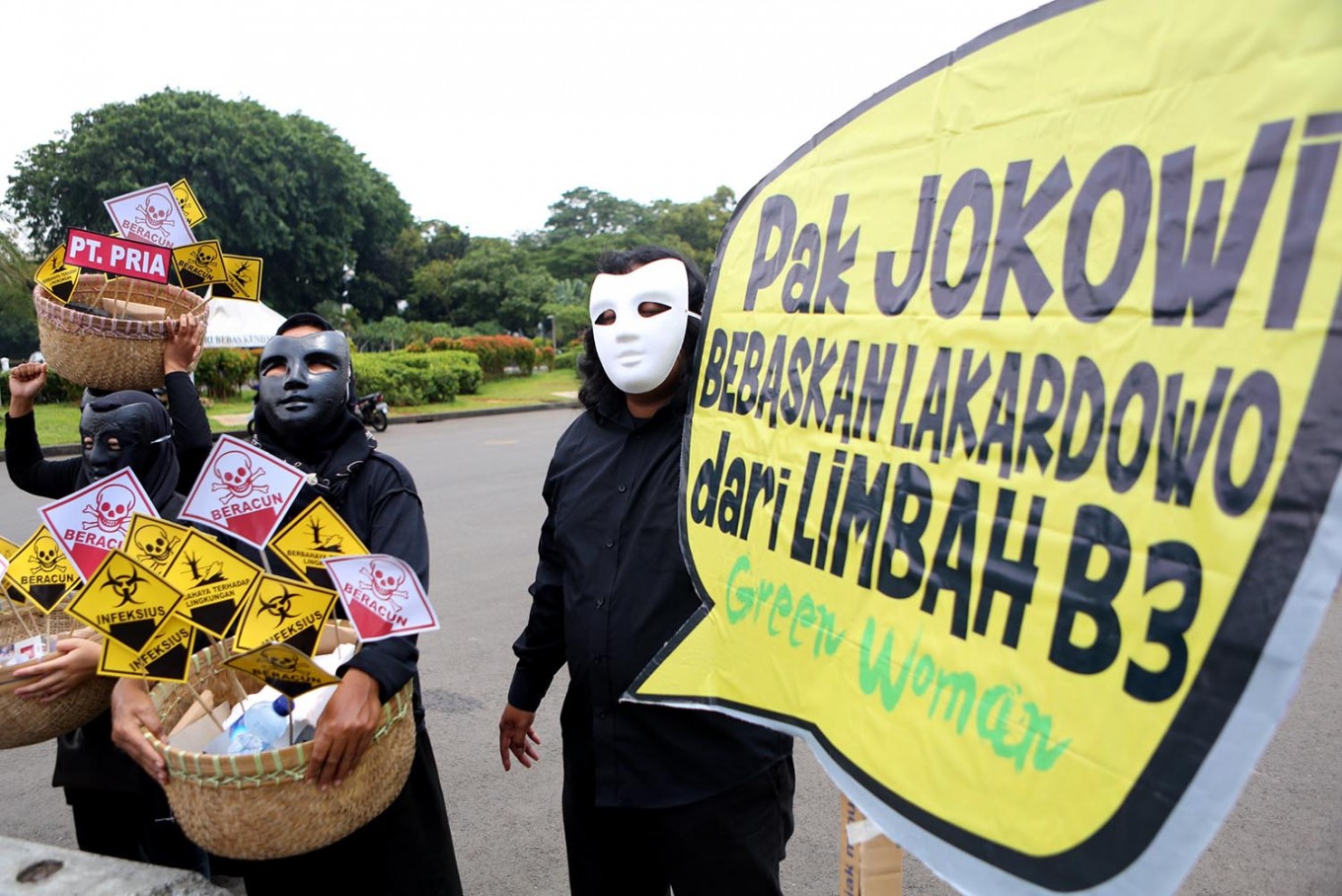Popular Reads
Top Results
Can't find what you're looking for?
View all search resultsPopular Reads
Top Results
Can't find what you're looking for?
View all search resultsDisposal of hazardous medical waste found wanting in Malang
Change text size
Gift Premium Articles
to Anyone
M
any hospitals, polyclinics, community health centers (Puskesmas) and doctor offices are oblivious to the importance of a hazardous and toxic waste (B3) disposal system.
Authorities in Malang, East Java, have found that private clinics routinely throw needles, syringes and sharp containers into regular garbage bins or household waste disposal facilities.
Malang Environment Agency head Agoes Edy Putranto said throwing needles in regular garbage bins was very unsafe and could trigger sanitation problems.
He was speaking at a training course on B3 waste management in Malang on Tuesday. The event was attended by 80 representatives of hospitals and clinics.
Agoes said all types of businesses that produced B3 waste were required to have a B3 waste treatment permit. All health care facilities in urban and rural areas must have a permit from the environment agencies in their respective areas to operate a trash disposal site for both liquid and solid B3 waste.
In Malang, only Saiful Anwar Hospital has a treatment plant for liquid and solid B3 waste. Meanwhile, 25 hospitals and 145 polyclinics in the city have only temporary disposal sites, where they put their B3 waste before private trash companies from Mojokerto in East Java and Cileungsi in West Java collect it and bring it to the final trash disposal facility.
“With this training, we educate them about proper B3 waste handling. There should be no more needles or syringes thrown into regular garbage bins, because this can lead to hefty sanctions,” said Agoes. (ebf)










